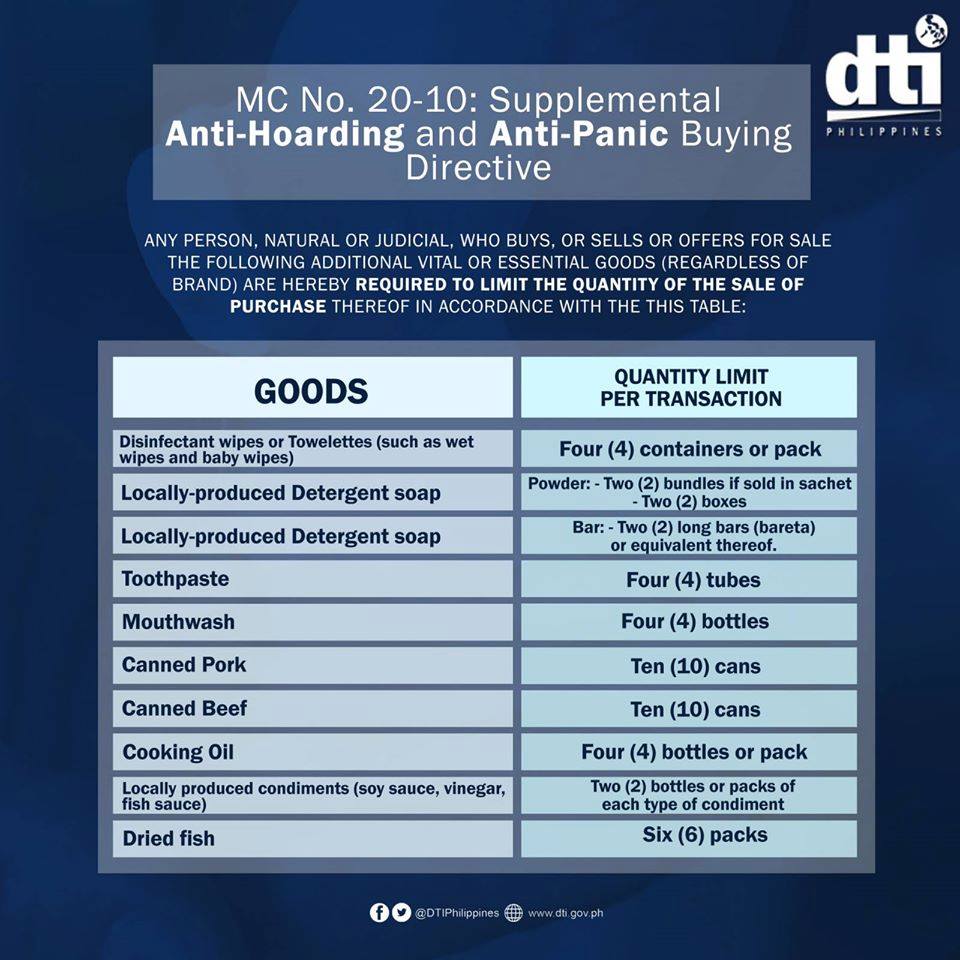
CEBU CITY, Philippines—The Department of Trade and Industry (DTI) has expanded its list of goods with limit on quantity that could be purchased per transaction.
DTI Secretary Ramon Lopez issued Memorandum Circular (MC) No. 20-10 entitled Supplemental Anti-Hoarding and Anti- Panic Buying Directive to set a limit on the quantity that could be purchased on another nine products. MC No. 20-07 came up with a list of essential goods and the quantity limit per transaction.
According to memorandum circular, DTI has been receiving reports that products classified as essential and vital goods but not included in MC No. 20-07 are being sold and purchased from point of retail in such quantity that is considerably more than what is normally needed for a period of one week or two.
The DTI Memorandum Circular No. 20-07 on Anti-Hoarding and Anti-Panic Buying sets the reasonable limit in the sale of all basic necessities and some products intended for the protection of health.
The products covered by MC 20-10 include non-food such as disinfectant wipes or towelettes; locally produced detergent soap; toothpaste and mouthwash. The food items included in the expanded list such as canned pork, canned beef, cooking oil, locally produced condiments and dried fish.
However, the MC excludes from coverage the bulk purchases made by a national government agency (NGA) or local government unit (LGU) for the purpose of distributing the basic grocery items to qualified beneficiaries and if the retailer would have sufficient stocks left for regular consumers.
The exclusion would not cover the bulk sale of disinfectants like sanitizers and alcohol products if the inventory retailers’ inventory levels could not accommodate the requirements of the NGAs and LGUs.
The said memorandum took effect immediately after it was issued on March 31, 2020.
To properly inform the public, retailers are required to post notices in conspicuous places within their stores/branches informing the consumers of the quantity of basic necessities that they are allowed to purchase. /bmjo